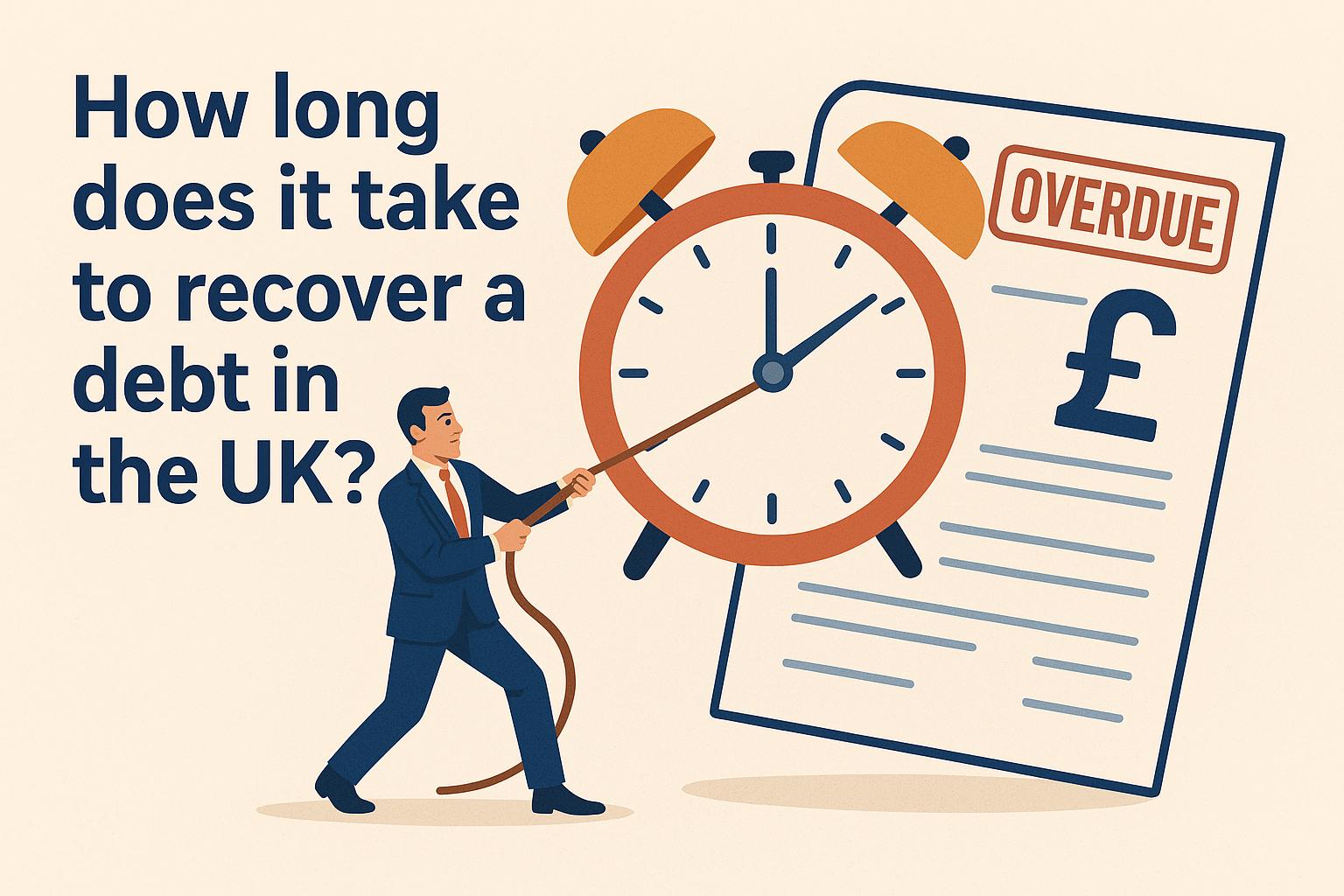
How long does it take to recover a debt in the UK?
Understanding Debt Recovery Timeframes in the UK
Recovering a debt in the UK is a multifaceted process that can vary significantly in duration based on several conditions and factors. The process typically entails several stages, each contributing to the overall timeframe required to resolve the outstanding debt. Below is a comprehensive exploration of the typical steps involved in debt recovery and the associated timeframes.
Initial Communication and Negotiation
The outset of the debt recovery journey typically involves an initial communication phase, dominated by attempts at negotiation between the creditor and the debtor. This stage is aimed at resolving the debt issue in an amicable manner, potentially avoiding more formal proceedings. Generally, this phase can last from two weeks to several months depending on specific circumstances. Several factors contribute to the duration of this phase:
Debtor’s Willingness: The willingness and ability of the debtor to address and settle the debt play a pivotal role in how quickly the negotiations are resolved. An amenable and cooperative debtor will likely expedite the process, while those unwilling to engage or financially strained could result in prolonged negotiations.
Creditor’s Flexibility: The creditor’s flexibility and approach to settling the debt also determine how quickly a resolution can be reached. Some creditors may be open to adjusting repayment plans or amounts to facilitate a quicker resolution, while others may adhere strictly to initial terms.
Formal Legal Action
If attempts at informal negotiation do not yield a satisfactory outcome, creditors may find it necessary to pursue formal legal action to recover the debt. This progression marks a more structured phase of the debt recovery process.
Letter Before Action (LBA): As a precursor to formal legal action, creditors will often issue a Letter Before Action. This document serves as a final demand to the debtor, providing them with one last opportunity to settle the outstanding debt before court proceedings are initiated. Typically, debtors are afforded a period of 14 to 30 days to respond to this letter.
Small Claims Court Process
For debts that fall below the threshold of £10,000, the Small Claims Court becomes a viable option for creditors. This forum provides a relatively accessible path for resolving smaller debts. Filing a claim in the Small Claims Court is designed to be straightforward, allowing individuals to navigate the process without the need for extensive legal support. However, scheduling a hearing or reaching a settlement through this avenue typically requires three to six months, although this timeframe can vary depending on the court’s schedule and the complexity of the case at hand.
County Court and Higher Claims
In scenarios where the debt exceeds £10,000, the matter may escalate to the County Court, which involves more elaborate procedures. Cases in this category are often more intricate and can demand six months to over a year for resolution. The involvement of the County Court encompasses more extensive legal protocols and documentation, which contributes to the lengthier timeframe. If the debtor disputes the claim, it prompts additional legal proceedings, consequently extending the overall process.
Enforcement of Court Judgments
Securing a favorable court judgment represents a significant step in the debt recovery process, yet it does not inherently result in the immediate settlement of the debt. Creditors often need to undertake additional enforcement actions to ensure payment is forthcoming from the debtor. Various enforcement measures can be employed:
Instructing Bailiffs: Creditors may seek the services of bailiffs to recover the debt through the seizure and sale of the debtor’s assets.
Applying for a Charging Order: This order secures the debt against the debtor’s property, providing an avenue for eventual repayment.
Enforcement actions necessitate additional time for completion, typically prolonging the recovery period by another three to six months.
Factors That Influence Recovery Time
The length of time required to recover a debt is not uniform and can be influenced by numerous factors:
Debtor’s Financial Circumstances: The debtor’s financial health and capability have a direct impact on the recovery timeline. A financially stable debtor is more likely to expedite repayment, whereas financial challenges could result in delays.
Complexity of the Case: Cases that involve intricate legal or financial issues often entail more in-depth examination, leading to extended resolution periods.
Court Backlog and Availability: The efficiency of the court system also plays a crucial role. A backlog of cases or limited court availability can slow down proceedings, extending the timeframe required for case resolution.
Conclusion
The process of recovering a debt in the UK is nuanced and varied, with timelines ranging from a few weeks in straightforward instances to over a year in more complex matters. A multitude of factors, including the debtor’s financial status, the complexity of the case, and the court’s scheduling capacity, all contribute to the overall recovery duration. Creditors aiming to recover debts should remain mindful of these influencing elements as they embark on the debt recovery process. For enriched understanding and guidance on the process, seeking legal counsel or referencing official resources, such as the UK Government’s Money Claim Online service, can be beneficial.
- Posted by
 admin
admin - Posted in Uncategorized
 Oct, 30, 2025
Oct, 30, 2025 Comments Off on How long does it take to recover a debt in the UK?
Comments Off on How long does it take to recover a debt in the UK?
